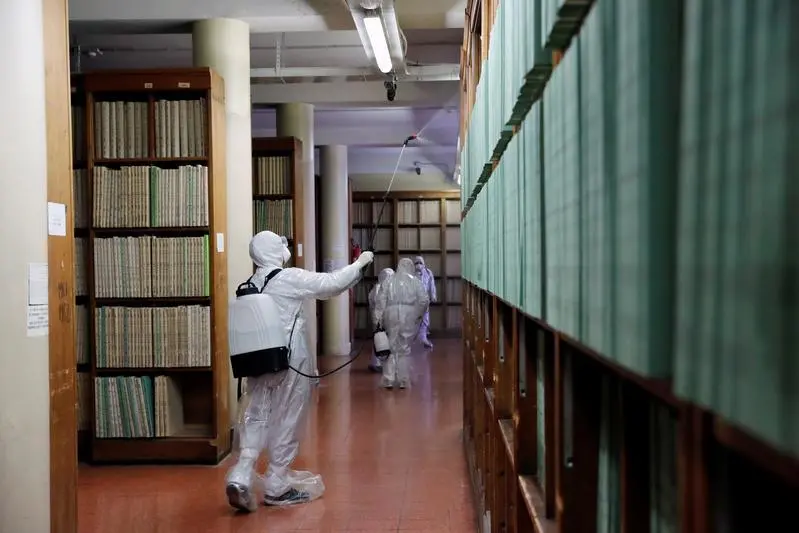PHOTO
I write from the center of the coronavirus epidemic that has hit Italy, and I would like to make some clarifications. Despite the thousands of deaths, it is wrong to think that the whole country has been hit by the infection, as 80 percent of the victims are concentrated in three northern regions and most of them are registered in Lombardy, along the road connecting Milan, Bergamo and Brescia — the industrial engine of Italy.
Can we think that the virus does more damage where the air is more polluted? It is not proven, but it is a fact that, despite there being thousands of people who fled from the north to the south of the country to avoid segregation in Lombardy (which was later extended to the whole country), fortunately the virus has hardly taken root south of Rome.
Unfortunately, the centers of greatest propagation of the virus were hospitals, where the first patients were not placed in dedicated departments, meaning they spread the virus, and where heroic doctors treated patients without any defense barriers and ended up getting infected themselves, before involuntarily infecting other patients.
The serious shortage of face masks, disinfectant gels, gowns and medical material is the subject of bitter controversy, since the government declared the emergency on Jan. 31 but did absolutely nothing to acquire the necessary materials for prevention. Indeed, the premier had repeatedly stated that the arrival of the virus was practically impossible and that, in any case, Italy was absolutely prepared. According to the center-right opposition, this non-transparent attitude is due to a too-close, almost subordinate, link between the “yellow-red” government and China, in whose sphere of influence Italy is increasingly entangled — at the expense of its traditional alliance with the US.
The most serious deficiency, the real heart of the problem, is the lack of ventilators, which are indispensable in intensive care, where the most serious patients end up. The few thousand in place are not enough, meaning doctors have often been forced to decide, depending on the age and life expectancy of their patients, who to save. While waiting for valid drugs (at the moment, several are being tried between France, Italy and Germany), these machines can make the difference. The fact that Germany has 10 times more than Italy can probably explain the relatively small number of deaths in that country, while Spain, with a weaker health system than Italy, is in a catastrophic situation.
Unfortunately, the EU has disappointed everyone and many are now wondering what it is for. Brussels has been unable to manage a common response and, after the closure of the borders between EU nations, each country has thought only of itself, with cases of great selfishness that have effectively left Italy isolated. The only aid has come from the US, Russia and even a contingent of doctors from Cuba, as well as from China, albeit with some arguments between the government, which mounted a press campaign to “Thank China,” and the opposition, which appreciates Chinese aid but considers it small compensation for the damage done by the months of lack of information from Beijing.
As the deaths increase, many doctors are among the fallen, and the age of the infected is lowering, touching many between 30 and 50. According to the mayors of Bergamo and Brescia, many are those who die at home or outside hospitals and are not accounted for.
But there is also some element of hope because experts believe that the peak of the infection will be reached by Sunday and, from then onwards, things will improve.
What is certain is that our economy is destroyed. The Italian industrial engine has stopped and many of its components may not be able to restart. The weak measures of a weak government are clearly insufficient and, without a great injection of resources from the EU, the prospects for Italy are of dramatic decline. The only hope is that the Italian model, with its various mistakes and excellence, will serve others (unfortunately it is too late for our Spanish brothers) and help them understand how to manage this emergency.
- Max Ferrari is a journalist and politician. He is a former parliamentary journalist, a war correspondent in the former Yugoslavia, Iraq, Afghanistan and Lebanon, and director of a TV channel. He is an expert in geopolitics and energy policy. Twitter: @MaxFerrari
Copyright: Arab News © 2020 All rights reserved. Provided by SyndiGate Media Inc. (Syndigate.info).





















